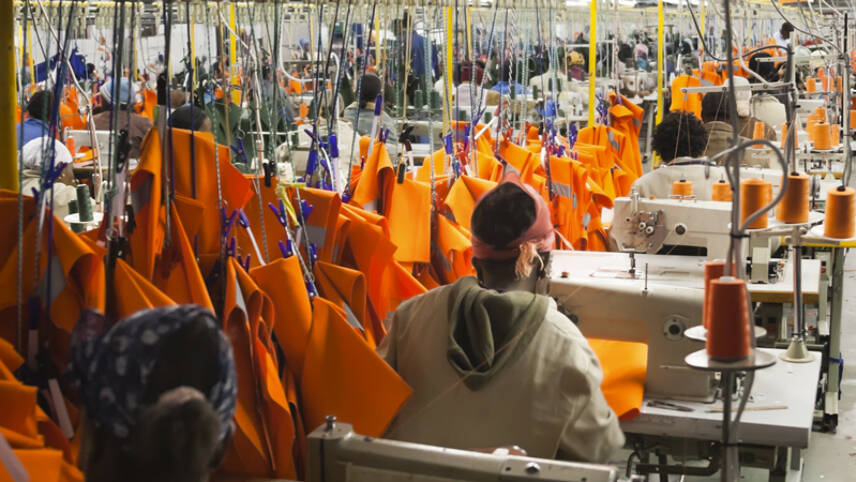Register for free and continue reading
Join our growing army of changemakers and get unlimited access to our premium content

The rules are set to imply to products made in the EU, and imported products
The EU’s proposal on corporate accountability requires large companies that are either based in member states or have a considerable turnover in the EU to identify, prevent and mitigate human rights and environmental violations throughout their value chains.
Currently, due diligence rules are in place only in a few EU countries, like France, while in Germany, companies with more than 3,000 employees will need to carry out mandatory due diligence starting January 2023.
The EU proposal would apply to all companies based or operating in the bloc with more than 500 employees and a net €150m in annual turnover but also smaller companies in high-risk sectors, such as textile, agriculture, and mineral extraction industries.
According to Christopher Patz, a policy officer at the European Coalition for Corporate Justice (ECCJ), only a few member states have so far reached a position on the file, also due to the “technical” nature of the directive.
“It is quite cross-cutting and potentially far-reaching, so I do think it merits the proper consideration from member states,” he told EURACTIV, adding that “quite a significant part of the Council process will be undertaken under the auspices of the Czech presidency”.
The proposal will also be negotiated by the EU Parliament, which will likely push to strengthen the requirements for companies and the scope of the regulation.
Meanwhile, activists and NGOs are also calling on the Commission to improve access to justice for victims of human rights abuses and strengthen climate obligations for companies.
Companies, on the other hand, are divided on the new rules. While some support the proposal as it would level the playing field, others argue the rules should only be applied to the first tier of the supply chain.
According to Business Europe, a lobby group representing enterprises, corporate accountability throughout the value chain puts “unrealistic expectations on companies harming their competitiveness”.
Meanwhile, the European Economic and Social Committee (EESC) stressed in its opinion on the directive that abuses should be addressed by member states’ authorities and not companies.
“It is for states and governments to prosecute human rights violations,” said Antje Gerstein, rapporteur for the EESC opinion, adding that third countries should be helped to better fulfil their duty to protect human rights.
A ban on forced labour products
Meanwhile, the European Commission is also working on a ban on products made by forced labour, which is expected to be presented in September, complementing the due diligence and transparency obligations already in place.
Data from the Commission shows that 25 million people globally are in a situation of forced labour, with the vast majority of them being exploited in the private sector. Some 160 million children are in child labour, half of them performing dangerous work.
According to internal documents seen by EURACTIV, the legislation would prohibit the placing on the EU market of products made by forced labour, covering both domestic and imported products.
“There has to be a clear signal that forced labour, regardless of whether it happens inside or outside the European Union, has to be banned,” said MEP Bernd Lange, rapporteur of a resolution on forced labour products adopted by EU lawmakers in June.
In the text, the Parliament called on the Commission to ensure that public authorities at EU borders seize goods created and transported by forced labour in case of “sufficient evidence” of abuses.
Moreover, according to members of the European Parliament, the importer should have to prove the absence of forced labour before the cargo can be released.
However, the legislation should not become a “bureaucratic veto”, Lange said.
“At the end of the day, it should be possible for companies to have really practical, reasonable legislation.”
SIlvia Ellena & Luca Bertuzzi , EurActiv.com
This article first appeared on EurActiv.com, an edie content partner


Please login or Register to leave a comment.